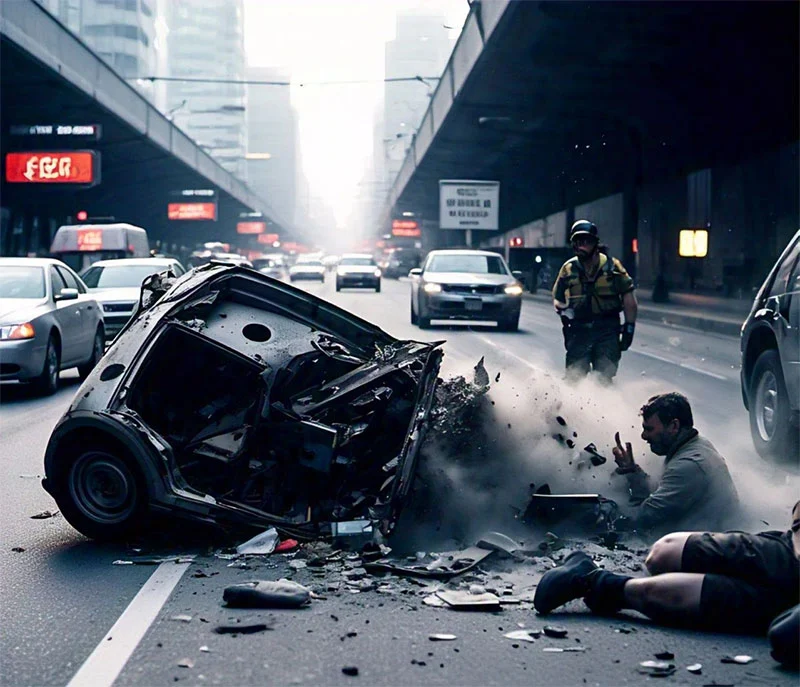What to Do After a Car Accident
Car crashes can occur suddenly and catch people off guard, often leading to feelings of confusion and stress. Being aware of what to do afterward can help keep everyone safe, protect entitlements, and make insurance claims easier. This article provides steps to consider in the aftermath of a car accident.
Prioritize Safety Above All Else
The safety of all individuals should be the top priority at all times during an accident. If the collision is minor and the vehicles are still operational, it is advisable to move them to a safe area, such as the roadside or a nearby parking spot, to avoid further accidents. Activating the hazard lights signals to other drivers, helping to create a safer environment for everyone involved and avoiding incidents of Pompano Beach car accidents.

Examine the Extent of Injuries
Once the vehicles are safely secured, it is important to check for signs of injuries. If anyone appears hurt, contacting emergency services immediately is essential. Even if the injuries seem minor at first glance, it’s recommended to seek medical attention as a precaution. Symptoms may not appear immediately, so professional evaluation can help prevent complications in the future.
Get in Touch with the Authorities
Alert the authorities when necessary, especially in the case of accidents. They will investigate the scene and prepare a report, which could be crucial for insurance claims or legal matters. Sharing details with the police helps establish an accurate account of what happened.
Swap Information
It’s important to exchange information with everyone involved in the accident, such as names, contact details, and insurance information. Be sure to collect all relevant details, including phone numbers, addresses, and the make and model of the vehicles involved, along with their license plate numbers. This helps create a record of what occurred. Remember, do not discuss who is at fault or specific details about the accident with anyone involved.
Record What is Happening Around You
Documenting the accident site is crucial for reference and evidence collection. Photographing vehicle damage, road conditions, and any visible injuries can serve as proof if needed. Write down the date and time of the incident, as well as any weather conditions, to provide additional context.
Contact Your Insurance Company
Inform your car insurance company as soon as possible after the accident and provide them with all the relevant information and documentation you have gathered to help streamline the claims process. Insurers typically offer guidance on the next steps, including repairs and assessments.
Know Your Legal Rights
It’s essential to understand your rights following an accident. Consulting with a lawyer can be very helpful in dealing with any legal issues or disagreements that may arise afterward. A legal expert can clarify your rights and responsibilities, ensuring that you follow the law properly.
Let’s Talk About Mental Wellness
Experiencing a car crash can be emotionally and mentally challenging. It’s important to acknowledge and address any feelings of distress that may arise. Seeking support from loved ones, close friends, or therapists can help in coping with the aftermath. Discussing your emotions plays a significant role in healing and moving forward from the trauma and stress of the accident.
Mapping Out Strategies for Future Prevention
Reflecting on the crash can provide valuable lessons for preventing future mishaps. Understanding the factors that led to the collision can help improve driving behaviors. Whether it involves reducing distractions, adhering to speed limits, or maintaining a safe distance from other vehicles, these habits are essential in promoting overall road safety.
Keep Yourself Updated
Staying informed about driving regulations and insurance policies is beneficial, as laws may change over time. Being aware of the latest requirements ensures compliance with standards. Additionally, regularly reviewing and adjusting insurance policies guarantees proper coverage and provides a sense of security while driving.
Summary
Handling the aftermath of a car crash requires prompt action and attention to detail. Prioritizing safety, knowing your responsibilities, and addressing your emotional state are crucial in responding effectively. Following these tips allows individuals to protect their well-being, assert their rights, and facilitate a resolution. Keeping these steps in mind can help ease tension and uncertainty during this challenging time. If you’d like to learn more, you can explore additional guidance on navigating such situations.
